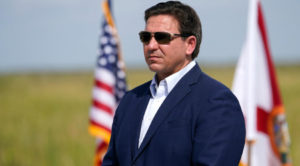A coalition of 1,609 scientists from diverse corners of the world has joined forces to challenge the prevailing notion of a climate emergency. This declaration, crafted by the Global Climate Intelligence Group (CLINTEL), doesn’t dismiss the role of greenhouse gases in influencing the environment but rather questions the heightened alarmism that has emerged from the narrative of imminent catastrophe.
Rooted in the principle that climate science should be a realm of scientific rigor and that policies should be informed by objective analysis, CLINTEL seeks to detach climate discussions from undue political influences. Their emphasis on addressing uncertainties and exaggerations in climate predictions reflects a conservative stance that prioritizes balanced perspectives over sensationalism.
The declaration is fortified by a wide spectrum of scientists, including two Nobel Prize laureates, demonstrating the multifaceted nature of the debate. Nobel Prize winner Dr. John F. Clauser, the 2022 Nobel Prize in Physics recipient, aptly encapsulated the sentiment against pseudoscientific sensationalism that has infected the climate discourse.
The underlying report that underpins this declaration systematically challenges several prevalent climate assertions. It particularly scrutinizes the notion of imminent tipping points leading to catastrophic environmental damage. Amidst the din of mainstream media’s crisis-driven rhetoric, CLINTEL’s skeptical outlook echoes a conservative approach that values objective evaluation over knee-jerk alarmism.
With historical reminders of past overblown predictions by figures such as Al Gore and Greta Thunberg, the conservative perspective reinforced by CLINTEL calls for measured consideration of the evidence at hand. The declaration confronts the notion of natural disasters being solely propelled by climate change, advocating for a more balanced analysis that recognizes the broader complexity of such events.
As leaders worldwide champion net-zero carbon emissions, CLINTEL voices a conservative stance in favor of adaptation over the often unrealistic and harmful pursuit of complete mitigation. This viewpoint aligns with a pragmatic approach that values responsible environmental stewardship while respecting the imperatives of economic growth.
In essence, the CLINTEL declaration emerges as a conservative counterpoint against a backdrop of mounting climate urgency, advocating for a cautious assessment of evidence, objective science, and well-balanced policy-making. The narrative it presents fosters a sense of measured optimism that resonates with those seeking a rational and thoughtful approach to addressing climate challenges.





